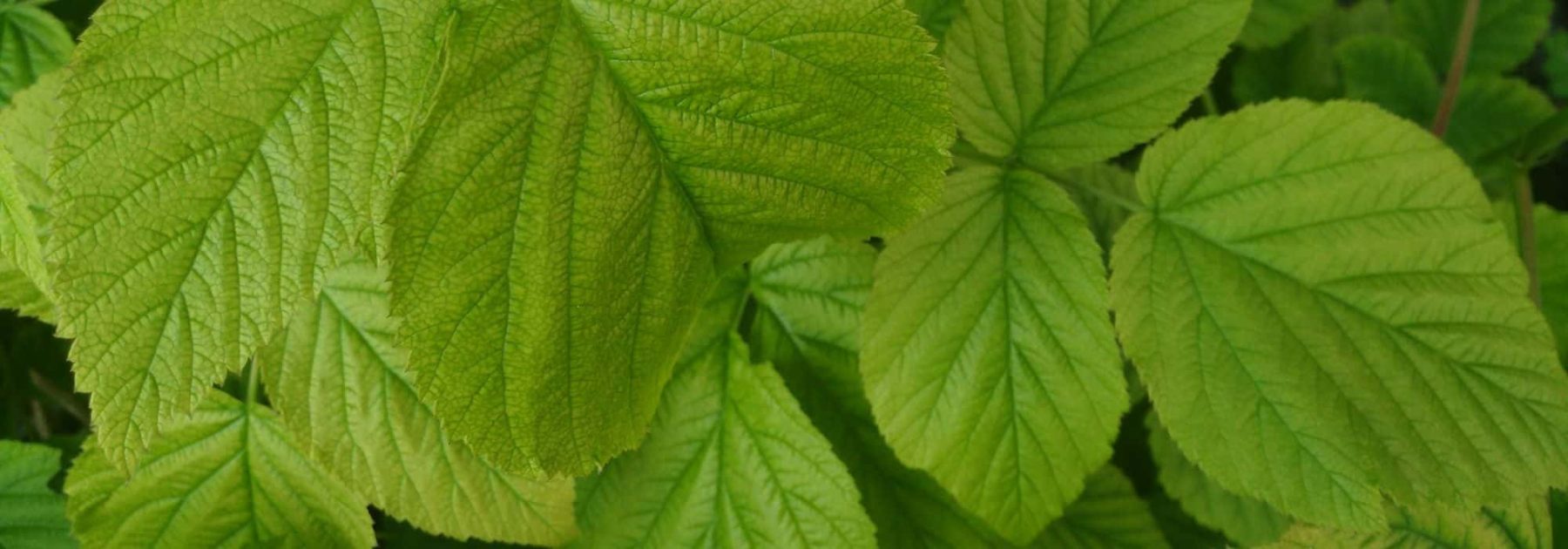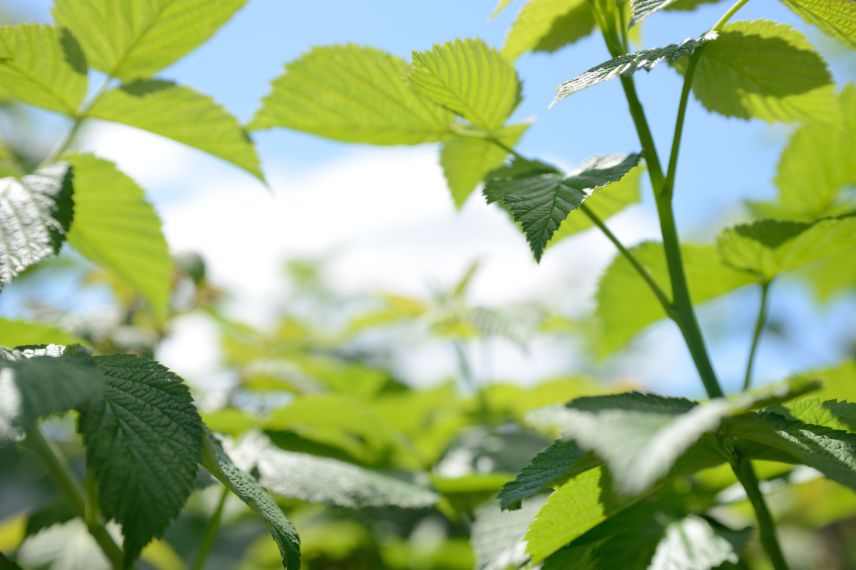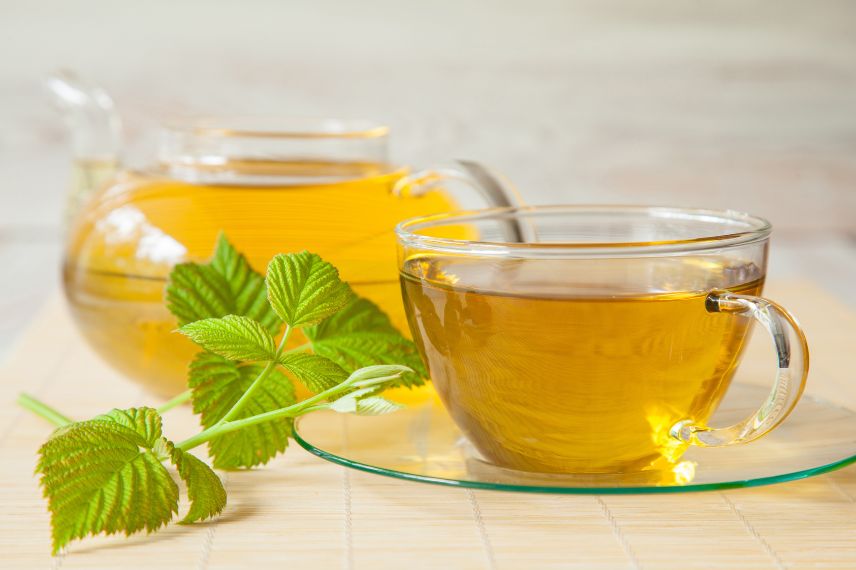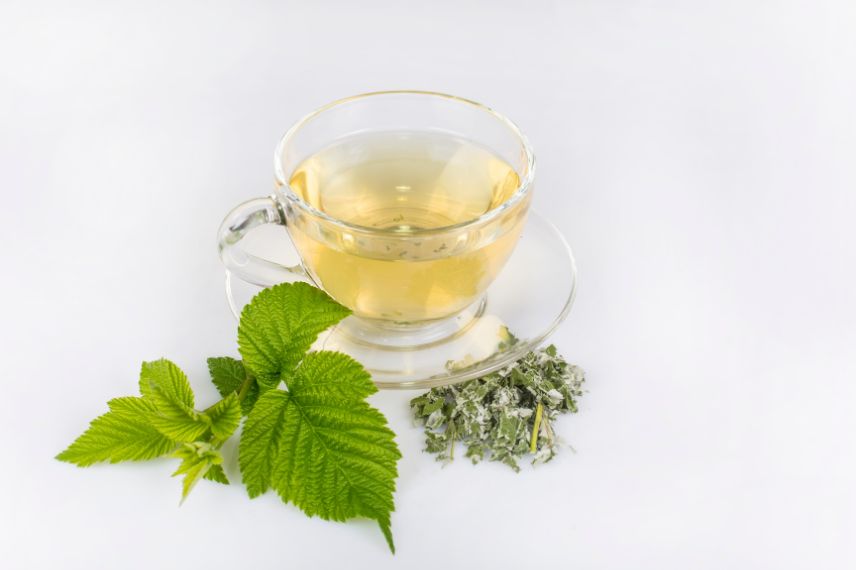
How to Aid Digestion with Raspberry Leaves?
recipe, benefits, and advice
Contents
Who hasn’t experienced bloating, stomach aches, or tricky digestion after a slightly too heavy meal? These discomforts can be unpleasant in daily life… Fortunately, nature (and the garden) offers us natural yet effective solutions to aid digestion.
Among these solutions, we find the leaves of the raspberry plant (Rubus idaeus). Often recognised for their benefits on women’s health, particularly during late pregnancy and the menstrual cycle, they are also a true ally for the digestive system. As a herbal tea, they aid digestion, reduce minor intestinal discomfort, and soothe mild inflammation.
In this article, we will explore how to prepare a raspberry leaf herbal tea, its health benefits, and how to use it effectively to take care of our body.
How do raspberry leaves aid digestion?
Composition and Active Ingredients
- Raspberry leaves are traditionally used for their richness in tannins and flavonoids, plant compounds with beneficial properties for digestive balance. They may help alleviate minor intestinal discomforts such as mild diarrhoea.
- In addition to their medicinal properties, these leaves are thought to be a valuable source of minerals such as calcium, iron, and magnesium, which are essential for maintaining the body’s balance and supporting the immune system.
Specific Digestive Benefits
Thanks to their unique composition, they may offer several digestive benefits:
- Regulation of bowel movements, helping to prevent both mild constipation and temporary intestinal disorders such as diarrhoea.
- Reduction of bloating and minor digestive discomfort, thanks to their soothing effect on the intestines.
- Support for the digestive system, contributing to smoother and more comfortable digestion.
In summary, these medicinal leaves could be a true ally for serene digestion and a lighter stomach.

Read also
How to dry raspberry leaves?How to Use Raspberry Leaves to Improve Digestion?
One of the best ways to enjoy the benefits of raspberry leaves is by consuming them as a herbal tea. This preparation is simple to make and effectively extracts the active compounds beneficial for digestion.
Recipe for a Digestive Infusion with Raspberry Leaves
Ingredients:
- 1 tablespoon of dried raspberry leaves (or 2 to 3 tablespoons of fresh leaves)
- 250 ml of boiling water
- Optional: a bit of honey or apple cider vinegar to enhance the digestive effect
Preparation:
- In a saucepan, heat the water until it simmers.
- Remove the saucepan from the heat, then add the dried leaves and let them steep for about 10 minutes.
- Strain the infusion to remove the leaves and pour it into a cup. This infusion is best consumed after meals to relieve mild digestive discomfort.
This raspberry leaf tea is an excellent natural remedy to reduce bloating and promote smooth digestion.
Tip: You can combine raspberry leaves with mint, fennel, or chamomile, three plants that are also allies for digestion.

When and How to Consume Them?
- Raspberry leaves are particularly useful for occasional digestive issues. For optimal effectiveness, it is recommended to drink this infusion after meals, limiting it to 2 to 3 cups per day. A one to two-week course can help balance digestion and reduce digestive discomfort.
- After a two-week course, it is advisable to take a break of at least three weeks to prevent the body from becoming accustomed and to preserve the effectiveness of raspberry leaves.
- After the break: If mild digestive issues persist, you can repeat the course. However, if the discomfort worsens, consult your doctor.
What are the precautions and contraindications related to the use of raspberry leaves?
Although raspberry leaves are an excellent digestive aid, it is important to take a few precautions before consuming them regularly.
Who should avoid consuming raspberry leaves?
- Women in early pregnancy should avoid drinking them, as the leaves have a toning effect on the uterine muscle, which could pose a risk of contractions. However, they are often recommended in late pregnancy to prepare for childbirth.
- If you suffer from allergies to plants in the Rosaceae family (such as the bramble or strawberry), be cautious.
- People with severe gastric ulcers: The high tannin content may worsen certain ulcers by increasing gastric acidity.
- Interaction with certain medications: As they can have an astringent effect and modulate intestinal absorption, raspberry leaves may interfere with certain medical treatments. If you are undergoing medical treatment, it is advisable to seek advice from a healthcare professional.
Possible side effects
Although they are generally well-tolerated, raspberry leaves may, if consumed excessively:
- Cause stomach aches or intestinal discomfort in sensitive individuals.
- Have a mild diuretic effect, which may be uncomfortable if you are prone to urinary issues.
- In cases of severe constipation, their astringent action could worsen the problem.

- Subscribe!
- Contents



































Comments